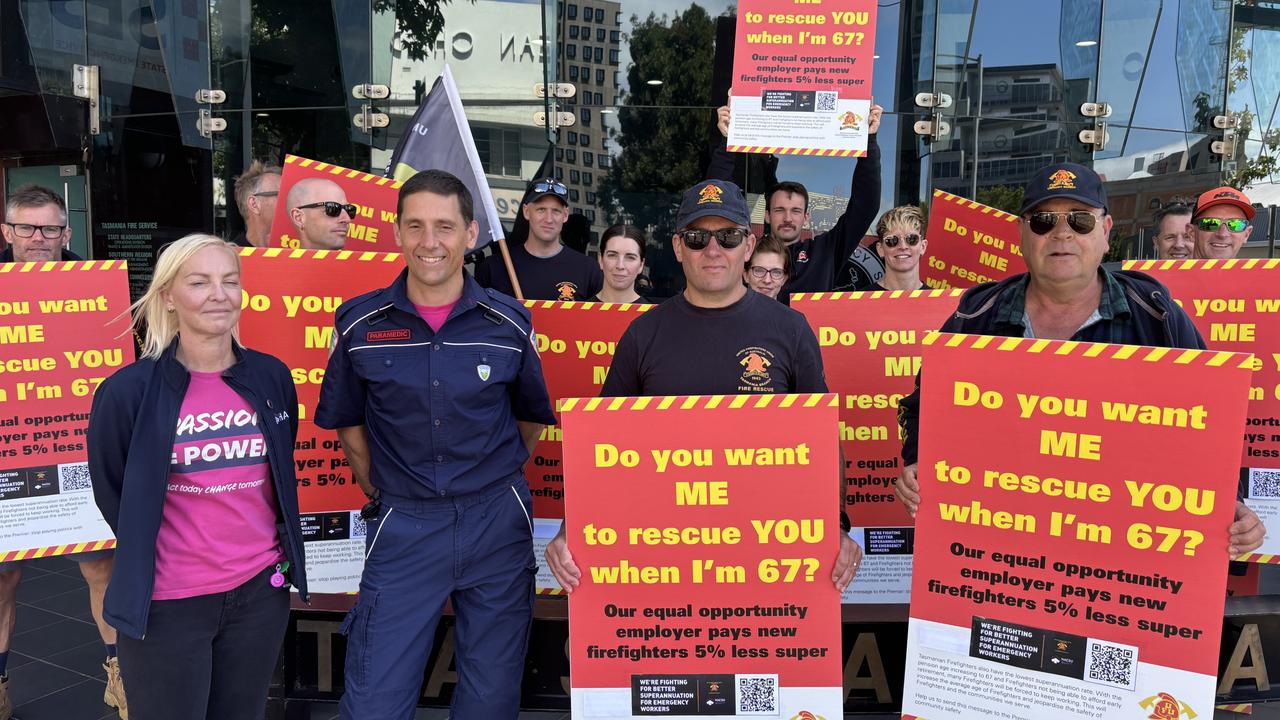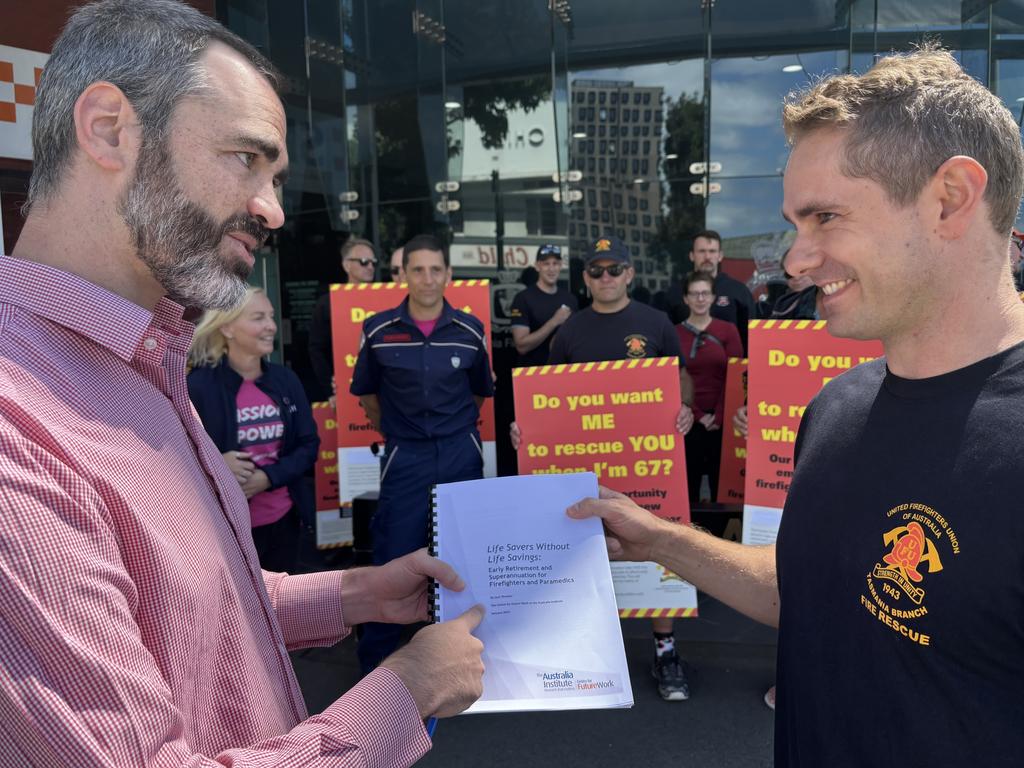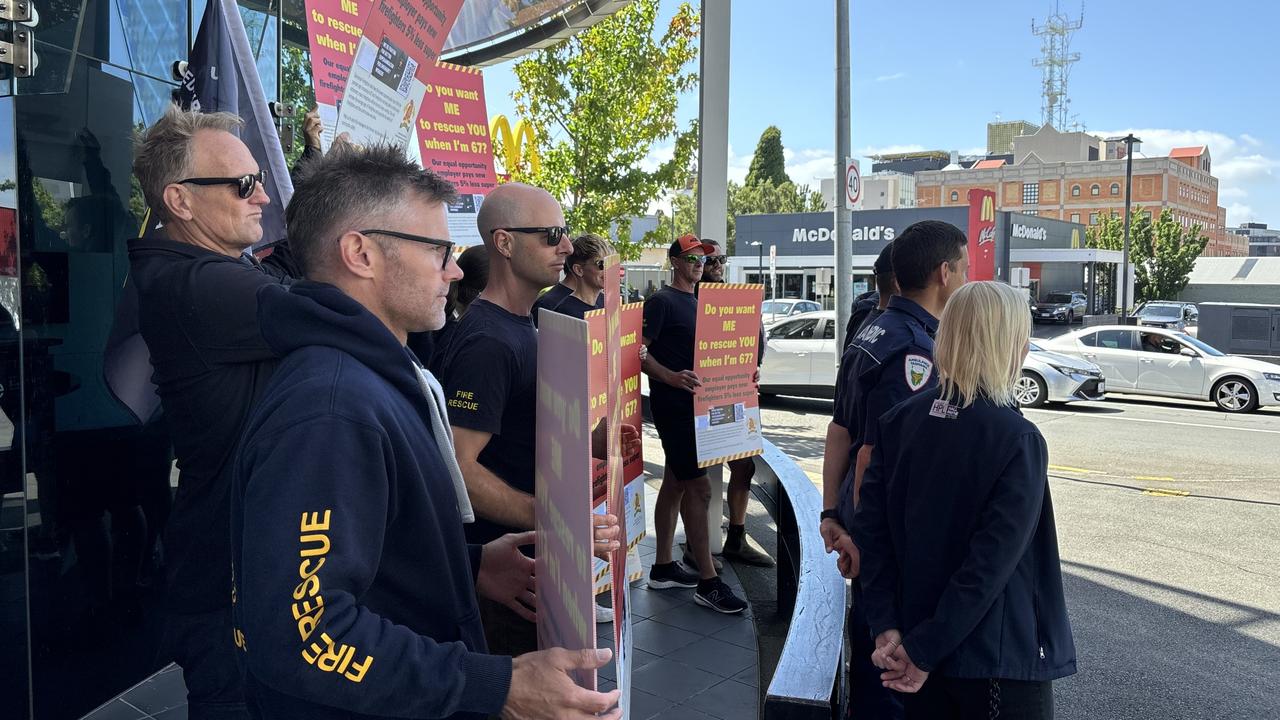Concerns from unions over report that outline superannuation shortfall experienced by firefighters and paramedics
Unions are concerned that their members will not be able to live a dignified retirement after a new report found that paramedics and firefighters often run out of superannuation before they die.

Tasmanian firefighters and paramedics want to see an increase in superannuation rates after a new report outlined how workers in those professions are likely to run out of money before they die.
Research by the Australia Institute’s Centre for Future Work has found that firefighters and paramedics have to cut their retirement living expenses by 18.5 per cent to avoid running out of super.
It also found that the average person in either profession will run out of superannuation six to seven years before their death.
It is even worse for women, where that gap stretches to nine to 10 years.

United Firefighters Union of Australia (UFUA) Tasmania Branch President Darren Gye said that people in the profession often retire earlier than people working other jobs.
“Unfortunately for us – due to the high standards we set for ourselves and the serious nature of our work – we feel a lot of pressure to retire when we can no longer meet those standards,” Mr Gye said.
“Due to the psychological and physical toll this job takes on us, we’re left in a position where many of us need to retire at 60 – if not earlier.
“Because we retire at 60, it’s very difficult for us to find similar paying jobs due to the unique skill sets we have.
“So what that means is we’re left in a position where we lose years of the ability to earn superannuation, which makes it harder to have a dignified retirement.”
UFUA Tasmania Industrial Organiser Stephen McCallum said the Australia Institute’s research outlined several potential ways to mitigate the issue.
“The one that we’re thinking is probably most appropriate is increasing the rate of superannuation payments so that over the career-life span, firefighters and paramedics are able to save enough to have a comfortable retirement.”

Mr Gye said the superannuation situation put firefighters in “a really terrible situation”.
“The dilemma is we’ve got the economic realities that face everyone.
“So what we’re forced to do is end up working longer in a job that we really can or should to ensure that we have enough superannuation to retire, which isn’t good for anyone.”
A Department of Police, Fire and Emergency Management spokesperson said its superannuation arrangements remain in line with current Tasmanian legislation.
“Any legislative change would be a matter for government. DPFEM remains committed to keeping Tasmanians safe and supporting our staff.”
Meanwhile, a Department of Health spokesperson said it paid its staff 11.5 per cent superannuation.
“This rate will increase to 12% from 1 July 2025. The Ambulance Tasmania Industrial Agreement expires on 30 June 2025,” the spokesperson said.
“There are established processes for staff and unions to negotiate pay and conditions of employment.”


